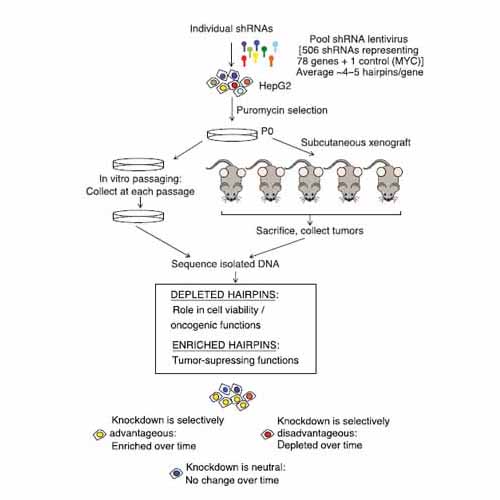METTL6 is a tRNA m3C methyltransferase that regulates pluripotency and tumor cell growth
2019-08-26
Valentina V. Ignatova, Steffen Kaiser, Jessica Sook Yuin Ho, Xinyang Bing, Paul Stolz, Ying Xim Tan, Chee Leng Lee, Florence Pik Hoon Gay, Palma Rico Lastres, Raffaele Gerlini, Birgit Rathkolb, Antonio Aguilar-Pimentel, Adrián Sanz-Moreno, Tanja Klein-Rodewald, Julia Calzada-Wack, Emil Ibragimov, Magdalena Valenta, Saulius Lukauskas, Andrea Pavesi, Susan Marschall, Stefanie Leuchtenberger, Helmut Fuchs, Valerie Gailus-Durner, Martin Hrabe de Angelis, Sebastian Bultmann, Oliver J. Rando, Ernesto Guccione, Stefanie M. Kellner, Robert Schneider
Recently, covalent modifications of RNA, such as methylation, have emerged as key regulators of all aspects of RNA biology and have been implicated in numerous diseases, for instance, cancer. Here, we undertook a combination of in vitro and in vivo screens to test 78 potential methyltransferases for their roles in hepatocellular carcinoma (HCC) cell proliferation. We identified methyltransferase-like protein 6 (METTL6) as a crucial regulator of tumor cell growth. We show that METTL6 is a bona fide transfer RNA (tRNA) methyltransferase, catalyzing the formation of 3-methylcytidine at C32 of specific serine tRNA isoacceptors. Deletion of Mettl6 in mouse stem cells results in changes in ribosome occupancy and RNA levels, as well as impaired pluripotency. In mice, Mettl6 knockout results in reduced energy expenditure. We reveal a previously unknown pathway in the maintenance of translation efficiency with a role in maintaining stem cell self-renewal, as well as impacting tumor cell growth profoundly.








